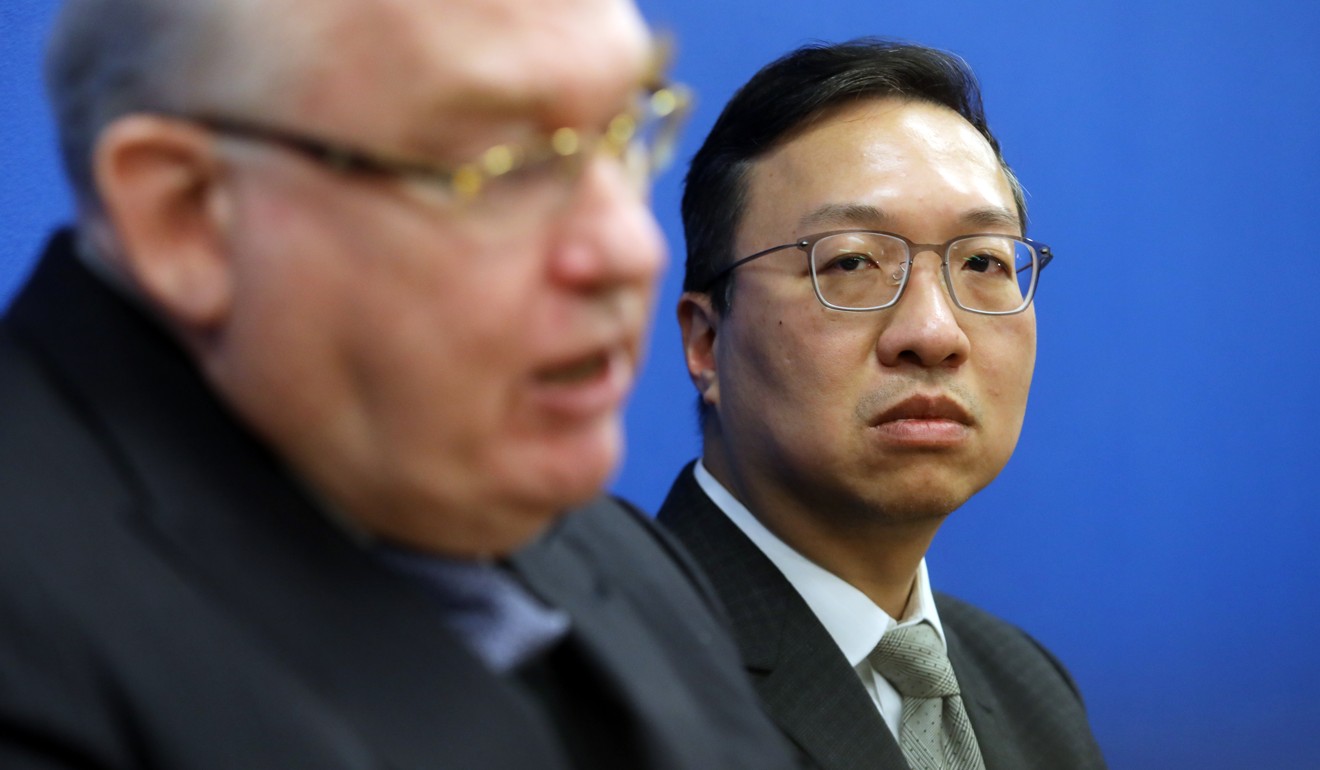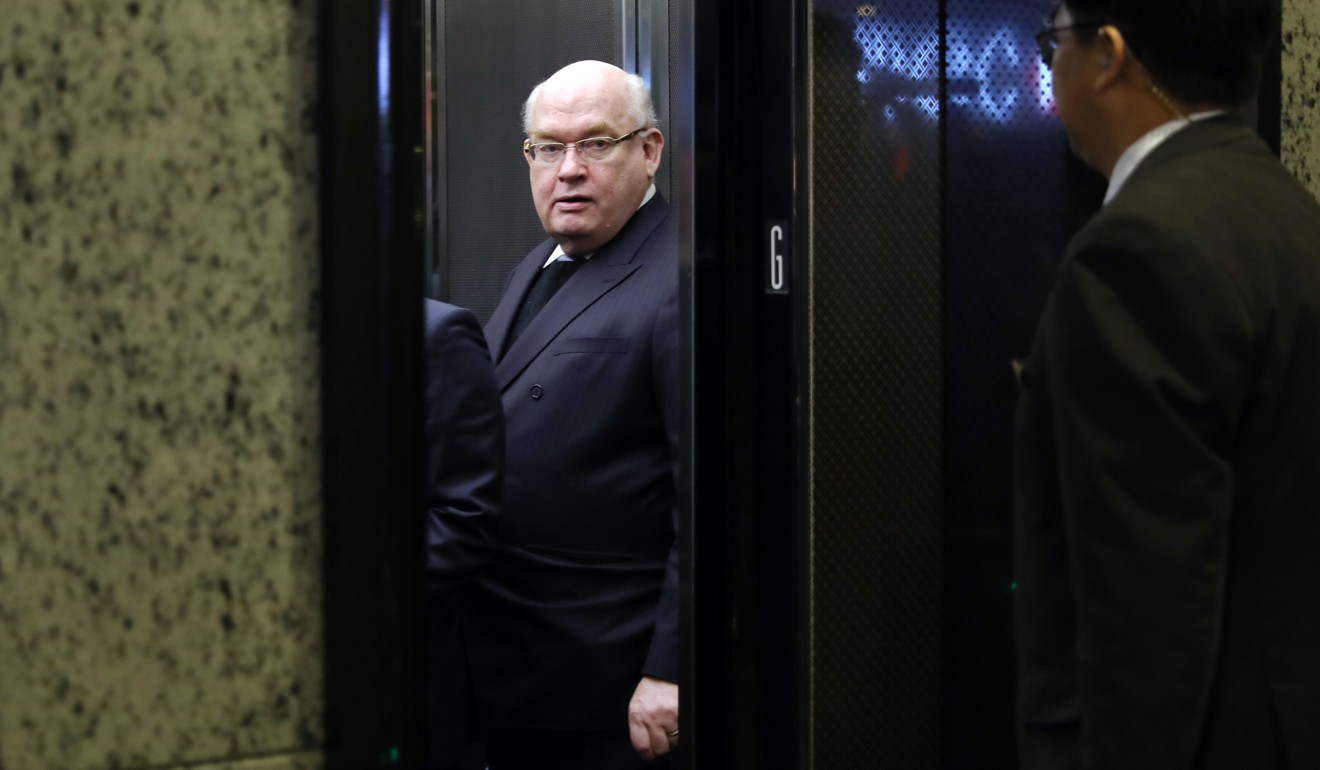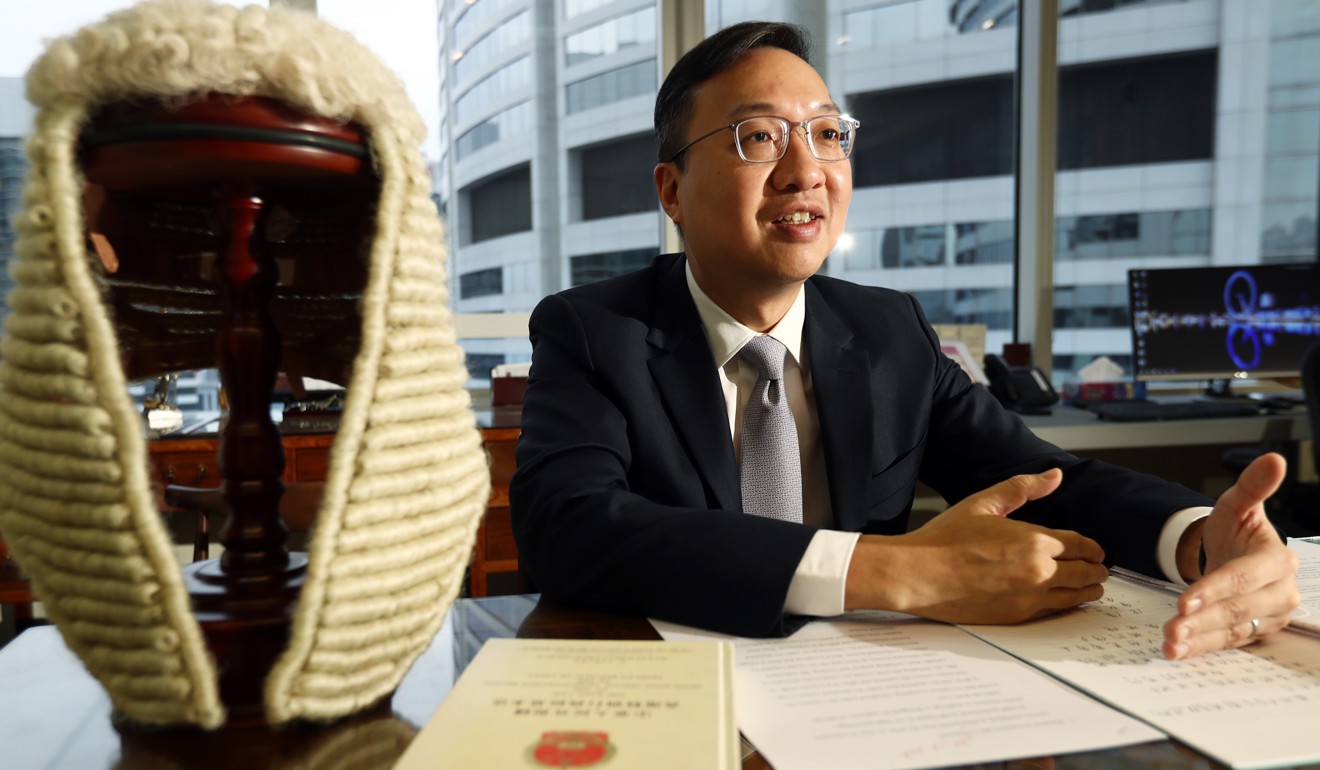
Philip Dykes elected new head of Hong Kong Bar Association in upset win
Human rights lawyer scores surprise victory to oust incumbent Paul Lam in politically charged contest centred on ‘co-location’ controversy
Leading human rights lawyer Philip Dykes was elected as the new chairman of the Hong Kong Bar Association on Thursday night, unseating the incumbent in an upset victory after the most heated and politically charged contest in years.
Calls for reform prevailed over incumbency as Dykes, seen as the underdog, beat Paul Lam Ting-kwok by around 100 votes after campaigning for the influential body of barristers to play a more progressive role in protecting the city’s rule of law.
“I believe the Bar will become stronger because differences have been identified and will be addressed by the forthcoming Bar Council,” he said, after four of his allies were also elected to the board of the council which governs the association. They included criminal law expert Lawrence Lok Ying-kam and liberal academic Professor Johannes Chan Man-mun.

Describing his high-profile battle with Lam as a contest “well fought by both sides”, Dykes also stressed there was no reason for the association’s relationship with Beijing to deteriorate under his leadership. He had already built good ties across the border during a previous stint as chairman a decade ago, he said.
Lam shared Dykes’ positive outlook in his concession statement, saying: “I believe that after the election, we will have a stronger Bar and a united Bar.”
He would not comment on the politicisation of the election after a year fraught with polarising disputes over constitutionally contentious moves by the government and Beijing.

“There is no question of having hard feelings,” he said. “I respect the members’ choice.”
More than 400 of Hong Kong’s 1,400 practising barristers voted in person at the Bar Association’s annual general meeting in Central – an unprecedented turnout – while the rest cast proxy ballots to pick their chairman and five board members for the 20-strong council.
Hong Kong’s barristers go to the polls for tightest contest in years
The association’s first contested leadership election since 2007 was a close race, drawing unprecedented public attention – incumbent chairmen usually complete a two-year stint under an unspoken rule.
Under the plan, endorsed by China’s top legislative body last month, mainland officials would be allowed almost full jurisdiction over part of the West Kowloon terminus leased to them.

Critics see it as undermining the high degree of autonomy enjoyed by the city under the “one country, two systems” policy.
Dykes had suggested the association took too long to issue the statement, while Lam countered that it was necessary “to avoid speaking prematurely on the wrong facts and law”.
Pro-establishment legislator and barrister Priscilla Leung Mei-fun, who attended Thursday night’s meeting, said members questioned the candidates about the so-called co-location arrangement for the rail link, as well as livelihood issues concerning barristers.
Opposition lawmaker Dennis Kwok, a barrister representing the legal sector in the legislature, described the session as “healthy and constructive”.
“Some members have said a lot of legal issues, including the legislation of a national anthem law and national security law, would arise in the coming years and they need the Bar Association to issue a timely response which offers a clear legal point of view,” Kwok said.
Lam and his backers also emphasised the importance of keeping the association independent and free from political interference, suggesting that their opponents were politicising the election.
Hong Kong Law Society warns lack of clarity on joint rail checkpoint could undermine ‘one country, two systems’
Ahead of Thursday night’s vote, Lam expressed gratitude to his supporters in a letter to members.
“We have no organisations, no outside backers, no PR professionals but you and your dogged determination to keep a Bar which is run by barristers and barristers alone, and which speaks out in the public interest,” he wrote.
Dykes said he and like-minded barristers would keep working for the Bar and for the rule of law, regardless of the election result.
Hong Kong Bar Association must steer clear of politics, top lawyer warns, as poll contest heats up
The association has been an influential voice in legal affairs.
In 2003, led by opposition politician Alan Leong Kah-kit it played a key role in opposing legislation on a national security law.
The bill was eventually shelved after 500,000 people took to the streets, fearing their rights and freedoms would be curbed.
Additional reporting by Ng Kang-chung

